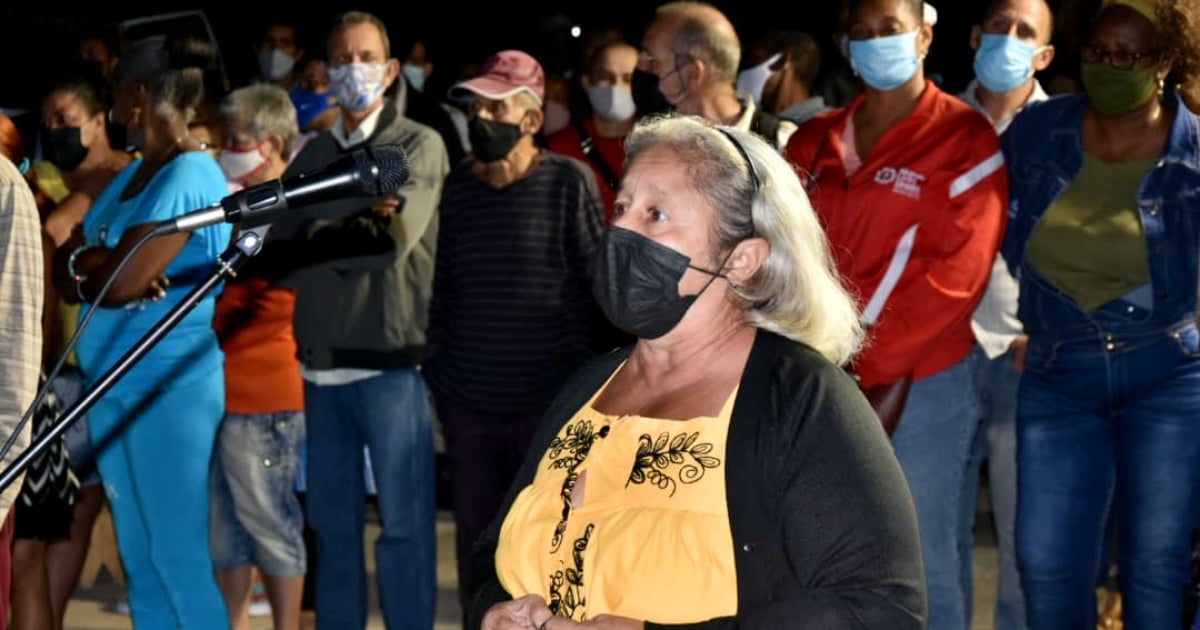The Council of State has called for a process of accountability for delegates to their constituents, scheduled to take place from September 20 to November 15, 2024, across the country. Homero Acosta Álvarez, secretary of the National Assembly of People's Power (ANPP) and the Council of State, explained that this will be the first such process in the current term of the Municipal Assemblies. The Cuban regime had postponed it in 2023, citing a "lack of fuel" as the reason.
Acosta Álvarez emphasized the importance of ongoing dialogue between the delegates and the constituencies that elected them. This process, he noted, actively involves mass organizations, local administrations, managers, and the general population. Before the accountability sessions, delegates will be required to directly engage in the preparation process, being relieved of their usual duties. Additionally, National Assembly deputies will be called upon to assist in local efforts, ensuring the highest possible quality during this stage.
The regime presents the accountability process as a way for the people to participate in governance. However, the population often views it as a formality attended to avoid being singled out, with the supposed dialogue with delegates seen as little more than a political charade.
The Public Sentiment and Previous Postponement
The Council of State's agreement 70-X, adopted on October 9, 2023, postponed the accountability process to the first quarter of 2024. To compensate, several actions were outlined, mainly freeing delegates from their work duties where possible to enhance their engagement with constituents and provide necessary information.
Out of 12,429 municipal assembly delegates, 9,901 were relieved of their work duties, representing 79.6% of the total. Among them, 5,285 were fully freed, and 4,616 partially, based on their responsibilities. However, 2,392 delegates, including municipal assembly leaders, were not relieved due to their critical roles.
From October 15 to December 31, 2023, the freed delegates directly interacted with over 2,500,000 voters, according to Acosta. This engagement resulted in 86,755 grievances, 74.9% of which were resolved. Additionally, 69,734 control actions were conducted on local service entities during this period.
Despite these efforts, public perception over the past two years has been that delegates have continued their usual behavior within the regime: voting unanimously and justifying socio-economic issues with the same arguments dictated by the government.
"Given the country's situation with electricity generation, fuel usage, and the impact on vital services for the population, which could affect the accountability process, the Council of State has decided to postpone it to the first quarter of next year," said an official statement justifying the decision due to the severe fuel crisis affecting the country.
However, Cuba's independent civil society interpreted the suspension differently, attributing it to the heightened public discontent amid repeated blackouts and worsening shortages of food and basic services. Considering that the situation and public sentiment have not significantly improved, many question whether the current conditions are conducive to holding such assemblies.
Mixed Opinions on Citizen Participation
The authorities' call comes after a coalition of civil society organizations, under the alliance "Rendición de Cuentas Ya," sent a letter to the Parliament in February demanding the meetings, which had already been suspended twice.
Some view these assemblies as a limited opportunity for the public to voice their opinions to regime representatives. In an interview with Martí Noticias, Frank Abel García, executive sub-secretary of Candidatos por el Cambio, stated that these assemblies "represent the only minimally democratic space for the population to express their opinions to regime representatives." However, he noted that it is a "very restricted space that even denies participation to those openly opposed to the regime, but it remains the only avenue for the population to voice their opinions to those representing the regime's interests."
García suggested that the country's crisis, massive exodus affecting hundreds of thousands of broken families, and prevailing despair could make the accountability assemblies focal points for citizen grievances.
On the other hand, Miriam Brito Sarroca, president of the Permanent Commission of Local Organs in the ANPP, asserted that the accountability of delegates to their constituents is crucial as it allows voters to know, evaluate, and comment on their representatives' performance over a set period.
However, opposition figure Martha Beatriz Roque Cabello argued that these assemblies solve nothing and that Cubans still fear being marked for speaking out.
Since the historic July 11, 2021 (11J) protests, Cubans consider public demonstrations more effective, frequently occurring in the streets and in front of People's Power, Communist Party of Cuba, and other government offices.
Citizen Participation and Accountability in Cuba
In light of the upcoming accountability process for delegates, several questions arise about the effectiveness and public perception of such measures in Cuba. Here are some frequently asked questions and their answers:
Why was the accountability process postponed in 2023?
The Cuban regime cited a "lack of fuel" as the reason for postponing the accountability process in 2023. However, independent civil society attributed the suspension to heightened public discontent amidst worsening living conditions.
What is the significance of the accountability process for delegates?
The accountability process is presented by the regime as a way for the public to participate in governance. It involves delegates reporting back to their constituents and addressing their grievances. However, it is often viewed by the population as a formality with little real impact.
How do the public view these accountability assemblies?
Many citizens view the assemblies as ineffective and merely a political charade. They attend to avoid being singled out, and there is a general sentiment that the supposed dialogue with delegates does not lead to meaningful change.
Have there been any positive outcomes from past accountability processes?
According to official reports, past accountability processes have resulted in the resolution of a significant number of grievances and control actions on local service entities. However, public perception remains skeptical about the overall effectiveness of these measures.
